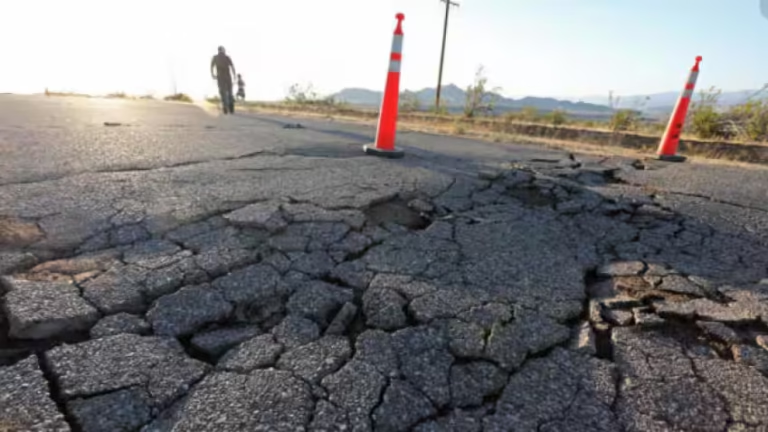
Office goers walk wearing a face mask amidst a thick layer of smog as air pollution shoots up in New Delhi, India, Monday, Nov. 18, 2024. (AP Photo/Manish Swarup)
Air Quality Index Soars Above 420, Triggering GRAP 4 Measures
Delhi’s air quality has once again plummeted to hazardous levels, with the Air Quality Index (AQI) surpassing the 420 mark, categorizing the air as ‘severe’. In response, the Delhi government has activated the fourth stage of the Graded Response Action Plan (GRAP 4), aimed at tackling the escalating pollution levels in the capital city.
AQI Crosses 420: A ‘Severe’ Situation
On December 17, 2024, Delhi recorded an AQI reading well above 420, making the air quality ‘severe’. The AQI at this level poses serious health risks, especially for vulnerable groups such as children, the elderly, and those with respiratory or cardiovascular conditions. The city is now grappling with smog, reduced visibility, and an increased incidence of respiratory illnesses.
The air quality in Delhi has consistently been a concern, and the return of the GRAP 4 measures highlights the severity of the situation. The smog, primarily caused by vehicle emissions, industrial pollutants, construction dust, and seasonal factors such as crop burning, has triggered alarm among environmental experts.
GRAP 4 Activation: What It Means for Delhi
The Graded Response Action Plan (GRAP) is a set of emergency measures that are put in place when the air quality deteriorates. Under GRAP 4, several key actions are undertaken, including:
- Closure of Schools and Construction Sites: All outdoor activities that contribute to air pollution, such as construction work, are halted to reduce further deterioration in air quality.
- Restrictions on Vehicle Movement: The number of vehicles on the road may be reduced, and the use of diesel-powered generators may be restricted.
- Increased Surveillance and Public Awareness Campaigns: The authorities are likely to deploy additional monitoring stations and engage in public outreach to warn citizens of the harmful effects of the air quality.
Health Implications of ‘Severe’ Air Quality
The ‘severe’ air quality has serious consequences for public health. Exposure to high pollution levels can cause acute respiratory infections, asthma, bronchitis, and other respiratory and cardiovascular diseases. Long-term exposure may lead to chronic conditions such as lung cancer and heart disease.
Doctors recommend that people limit outdoor activities and wear N95 masks to protect themselves. Vulnerable populations, including children, the elderly, and those with pre-existing health conditions, are particularly at risk. Hospitals in the region have reported a surge in cases of respiratory distress.
Steps to Improve Air Quality in Delhi
While GRAP 4 measures aim to mitigate the impact of the severe pollution, long-term solutions are necessary to address Delhi’s ongoing air quality crisis. The Delhi government has implemented several initiatives over the years, including:
- Promoting Electric Vehicles (EVs): The government has incentivized the use of electric vehicles to reduce emissions from traditional vehicles.
- Improved Waste Management Systems: Steps to manage waste better, including reducing stubble burning in neighboring states, are crucial in tackling the root causes of pollution.
- Green Spaces and Tree Planting: Expanding green spaces and increasing tree cover can help absorb pollutants and improve air quality.
Conclusion
Delhi’s air quality continues to pose a serious threat to public health, and with the AQI reaching hazardous levels once again, it is clear that urgent action is needed. The return of GRAP 4 measures is a necessary step to manage the immediate impact, but lasting solutions require systemic changes to curb pollution in the long run. As Delhi faces this environmental crisis, citizens must stay informed, take precautions, and demand more robust policies to combat air pollution.


